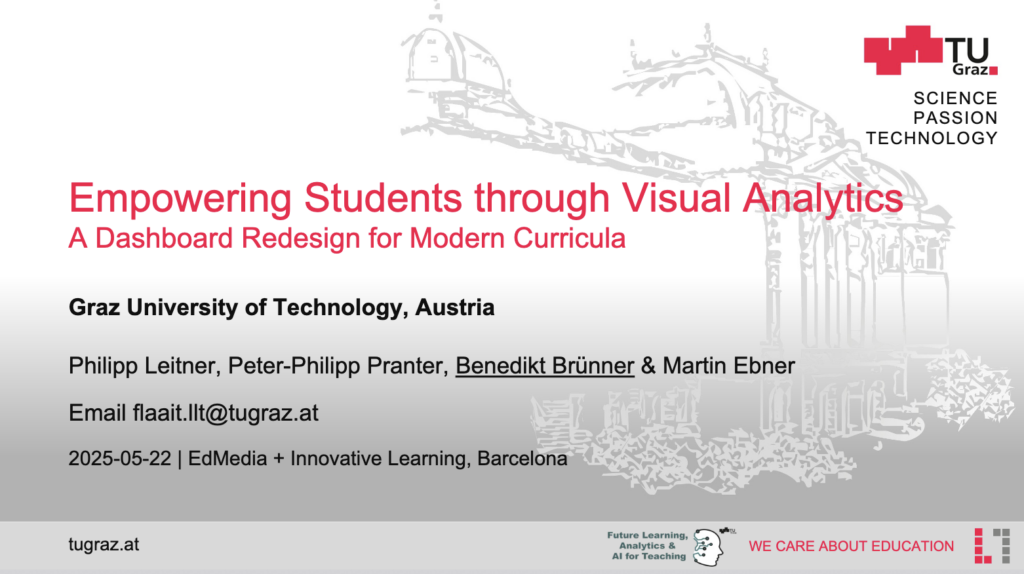Our publication titled „Empowering Non-specialist Teachers and Students in Coding: A Case Study of a Python MOOC in an Austrian High School“ was published.
Abstract:
This paper explores the integration of a Massive Open Online Course (MOOC) into the computer science curriculum of fifth-grade classes at an Austrian high school (so called “Gymnasium”) to introduce students to Python programming. A total of 42 students were surveyed, and two non-specialist teachers with no to little programming experience were interviewed to assess the MOOC’s impact and practical feasibility. While the MOOC provided a valuable entry point for many students in programming and online learning, the results also highlighted several challenges. Although over half of the students (57%) rated the MOOC as ‘very useful’ or ‘useful’, motivation for further self-learning was moderate, and only a subset expressed interest in continuing coding independently. Teachers appreciated the structured content and expert-led videos, which enabled them to facilitate programming instruction despite their limited technical background. However, they also reported difficulties in meeting the diverse pacing needs of students. These findings indicate that while MOOCs can offer accessible resources for both students and non-specialist teachers, their effectiveness depends on thoughtful integration and scaffolding. The study offers insights into the conditions under which MOOCs may support secondary level coding education, particularly in contexts with limited access to qualified computer science educators.
[full paper @ publisher’s homepage]
[full paper @ ResearchGate]
Reference: Wolf, D., Ebner, M. (2026). Empowering Non-specialist Teachers and Students in Coding: A Case Study of a Python MOOC in an Austrian High School. In: Hamonic, E., Sharrock, R. (eds) Digital Education: Shaping Sustainable Lifelong Learning for All in the Era of AI. EMOOCS 2025. Lecture Notes in Computer Science, vol 15733. Springer, Cham. https://doi.org/10.1007/978-3-032-00056-9_7
This is an impactful contributions, methodological rigor, and exceptional novelty in the research field of MOOCS and secondary education.

